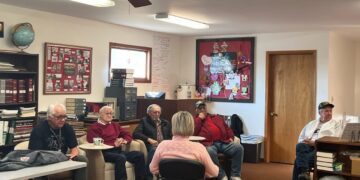Instead of “banning the box” to help ex-cons find a job, just get rid of unnecessary occupational licensing. There is a movement to ban employers from asking if a job applicant has a criminal history. The idea is to help ex-cons get back into the workforce so that they don’t return to a life of crime. Hans Bader points out that there is a better solution than rely on forcing employers to be ignorant of an applicant’s criminal past:
“People are more likely to commit crimes if they can’t find a job after being released from prison, according to a study released by the Manhattan Institute. Occupational licensing regulations make it harder for them to find a job.Reason magazine notes that a ten-year study released last year by the Center for the Study of Economic Liberty at Arizona State University found that ‘formerly incarcerated residents are more likely to commit a new crime within three years of being released from prison if they live in a state where they’re prohibited from getting a license solely for having a criminal record.’
“Once upon a time, occupational licensing regulations only restricted access to jobs that had unique privileges (such as lawyers, who can send you a subpoena demanding your diary) or that had unique public safety implications (like a surgeon, who can kill you if unqualified). Not anymore.
“Now, many occupations that pose no special risks or need for regulation are off-limits to people who have criminal convictions, or never committed a crime, but can’t afford to spend years on unnecessary training that is sometimes irrelevant or obsolete. Florida requires interior designers to undergo six years of training, including two years at a state-approved college. Other states force aspiring hair stylists to first attend exploitative beauty schools that often rip off their students. And ‘twenty-one states require a license for travel guides,’ notes the Brookings Institution. Occupational licensing has expanded from covering 5% of the workforce in the 1950s to 30% today.”
More at Competitive Enterprise Institute







